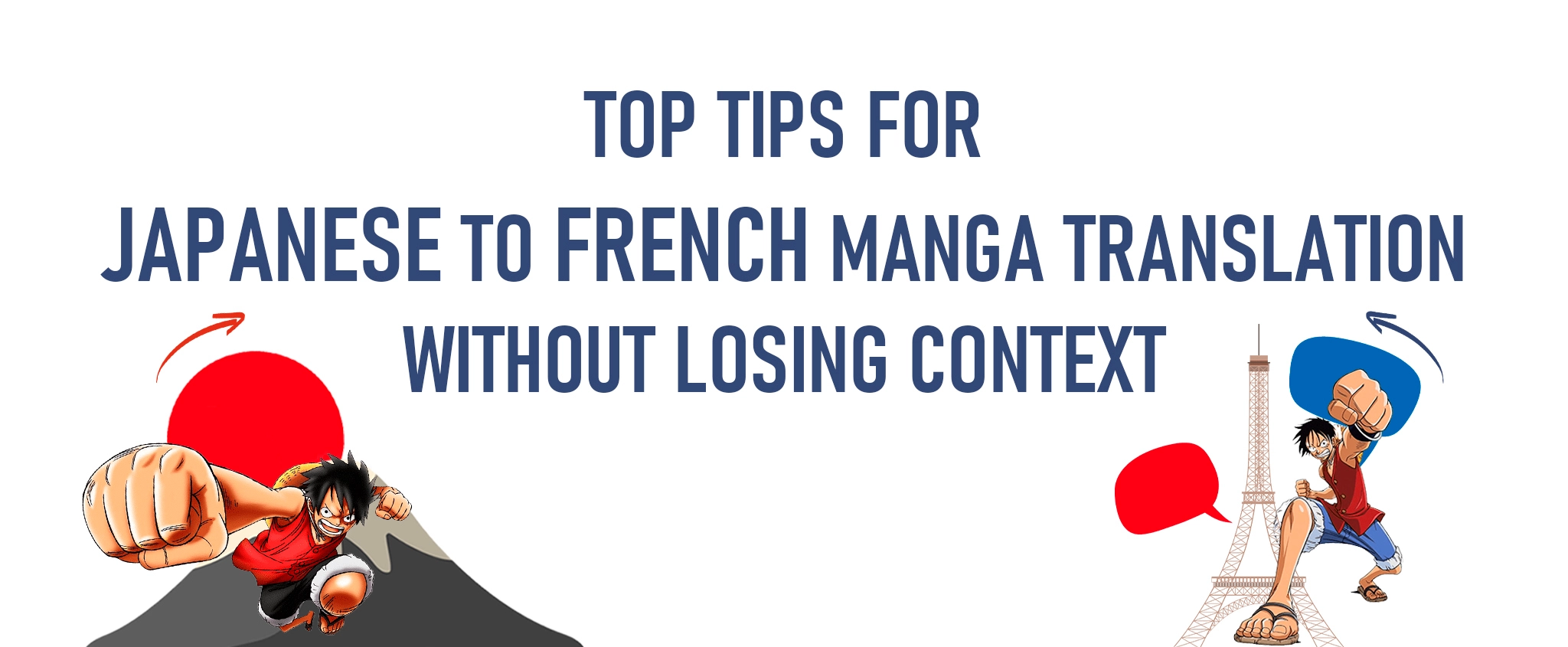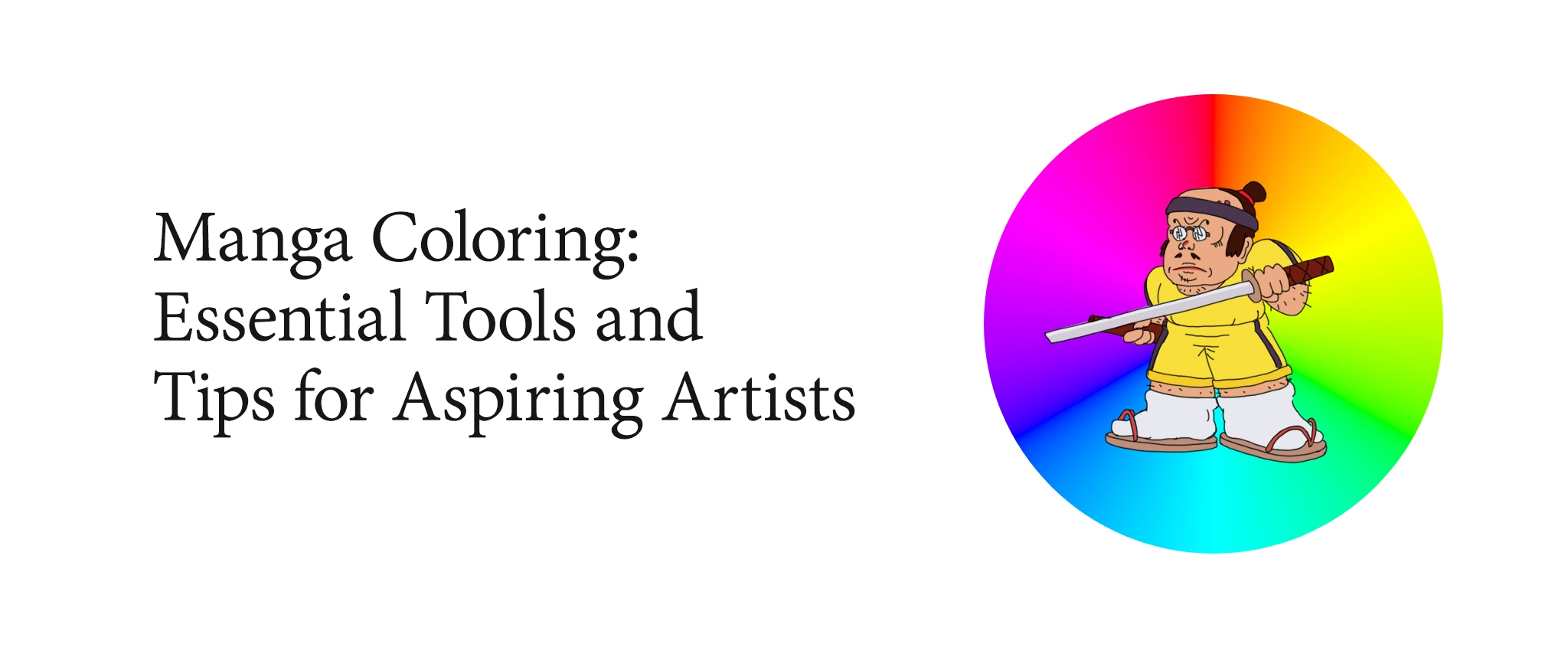The Benefits of Localizing Manga for the French Market
Key Takeaways:
- Manga French translation allowed the art form to dominate the French comics market, accounting for over 50% of all comic book sales in 2020.
- Localizing manga for the French market allows you to expand your audience base, boost sales and market share, and build a strong brand presence in Europe.
- When you translate Japanese manga to French or other languages, you may struggle with language and cultural differences, visual and artistic elements, and more.
- A manga adaptation for the French market follows a process that requires professional skills and tools.
Table of Contents:
- Understanding the French Manga Market
- Benefits of Localizing Manga for France
- How to Successfully Localize Your Manga for the French Market
The world knows manga as one of Japan’s most beloved exports, which, unsurprisingly, has also reached France. Thanks to those who have been localizing manga for the French market since the 90s, France has become the second-largest manga market outside its home country! While the challenges publishers face when venturing into manga adaptation for the French market are manifold, the advantages far outweigh them. Let CCCI explain how and why.
Understanding the French Manga Market
Before the early 1990s, various Japanese anime series entered the French market, laying the foundation for the subsequent success of manga in the country. One manga French translation after another, and the French audience needed more!
France has its own long-standing history of graphic novels or bandes dessinées, so the boom of manga does not come as a complete surprise. From earlier titles like “Akira” to more recent hits such as “Demon Slayer: Kimetsu no Yaiba,” the art form has found a dedicated French fan base.
In 2020, more than half of all comic titles sold in France were manga, with teens and tweens as the largest segment of readers and shōnen manga as the most popular genre. In 2021, the government introduced the “Culture Pass,” an app that enabled 18-year-olds to allocate up to 300 euros toward arts and culture. The app later earned the nickname “Manga Pass,” as much of the funds were directed toward purchasing manga titles.
The following year, Oda Eiichiro’s acclaimed series “One Piece” saw impressive sales, with the first volume selling over 250,000 copies and becoming the year’s top-selling manga. Now, there are many Japanese manga set in France or with French characters, as well as Japanese-inspired French manga.
Many French enthusiasts still prefer the print format of the art form, but there is an undeniable shift toward digital platforms and webtoons. As the audience becomes more digitally savvy, more online sources cater to them through manga conversion and other services.
Note: The manga industry in France sold 48 million volumes in 2022, an incredible increase from the previous years.
Benefits of Localizing Manga for France
Localizing manga for the French market was the key to all the abovementioned achievements. However, some publishers have yet to leverage the opportunities the service brings for several reasons.
Understanding and adapting cultural references, idioms, and humor that may not have a direct translation to the French audience can be challenging. Furthermore, maintaining the original tone and style of the Japanese dialogue while ensuring the translated text resonates with French readers requires expert skills.
Manga coloring and adjusting artwork for local readers can also involve reworking visual elements to fit local tastes and expectations better. Add the fact that the well-established audience is already accustomed to quality content, and new entries can become even more intimidated.
All these hurdles are not unique to the manga publishing industry. The same challenges exist when you translate Japanese manga to French or any other language, limiting publishers from reaching their full potential. Nonetheless, as we mentioned, the benefits outweigh the difficulties.
Expanding Your Audience Base
France is home to over 68.4 million people, with over 13 million under 18 years old. These are the people who make up the second-largest manga audience outside Japan. When you make your manga available in their language, you have a potential readership of millions!
Localizing your manga breaks down language barriers and allows you to include relevant themes and references. As such, you attract existing manga fans and draw in newcomers who may have otherwise overlooked the genre.
Boosting Sales and Market Share in France
Original Japanese manga in France can catch the eye of manga enthusiasts. The artwork alone is usually enough to make them curious. However, if they cannot read any of the text, they will not have the motivation to make a purchase.
Localization creates a strong connection between your manga and its foreign readers. The more French readers actually read, understand, and enjoy your manga, the more likely you are to sell copies. And with increased sales comes higher market share, further solidifying your position in the industry.
Pro Tip: Make your localized manga available in print and digital formats. Give readers a chance to consume your content in their preferred reading experience to make it even more accessible and appealing!
Building a Strong Brand Presence in Europe
France has an enormous manga market, but it is not the only country in Europe where manga has a following. The United Kingdom, Germany, and other European countries also have thriving manga communities! Localizing your manga for France essentially lays the groundwork for future expansions into these other European markets.
Having a presence in multiple countries builds credibility and strengthens your brand image as a global player in the industry. This approach can attract potential partnerships and collaborations with other publishers or production companies.
How to Successfully Localize Your Manga for the French Market
Now that we’ve established that localizing manga for the French market is a great strategy, let’s revisit the challenges we discussed earlier. CCCI has mastered the ways to overcome them, and we are here to help you do the same.
- Step 1: Do Thorough Manga Market Research. Understand reader preferences, cultural nuances, and competitive dynamics; these insights help you tailor your content effectively. Market research supports informed decisions, minimizes risks, and maximizes the chances of your manga’s success in the French market.
- Step 2: Translate Your Manga. This step involves more than direct translation; consider the distinction between European French and other French-speaking locales. Variations in vocabulary, idiomatic expressions, and even pronunciation can significantly impact how readers will receive your manga.
- Step 3: Consider Cultural References and Sensitivities. Understand that specific themes, humor, or icons that resonate well within one culture may not translate effectively or may even offend in another. Get insights into societal norms, taboos, and historical contexts relevant to French readers.
- Step 4: Work on the Visuals. Erase original texts and typeset the new script within the panels. Ensure the font choice, size, and placement enhance readability while complementing the artwork. Proper typesetting preserves the visual flow and contributes to a seamless reading experience.
- Step 5: Proofread and Revise. Proofread your manga to catch any errors or inconsistencies, and revise the dialogue to match character personalities better. It is ideal to compare the original and translated versions to see if the pacing, narrative, and dialogue are on point. Work on it until you have a polished final product!
These steps only roughly outline the actual process. If you have all the necessary skills and resources, you can take on the tasks yourself. However, doing so will take so much of your time and effort. If you want the highest quality for your translated manga, hiring the best manga translators for the French market, like CCCI, is the way to go.
Our team comprises native French speakers who deeply understand the language and culture, guaranteeing you accurate and nuanced translations. We also have software and tools that make the typesetting process more efficient. Our professionals can take over everything you have to do before partnering with local publishers and distributors.
CCCI is eager to support you in sharing your manga with French readers. Whenever you are ready to enter yet another promising market, let us talk about our manga translation services!






